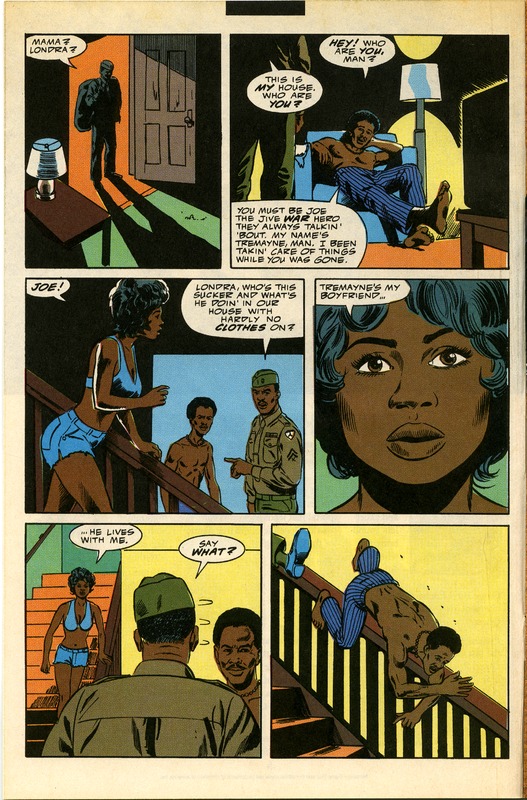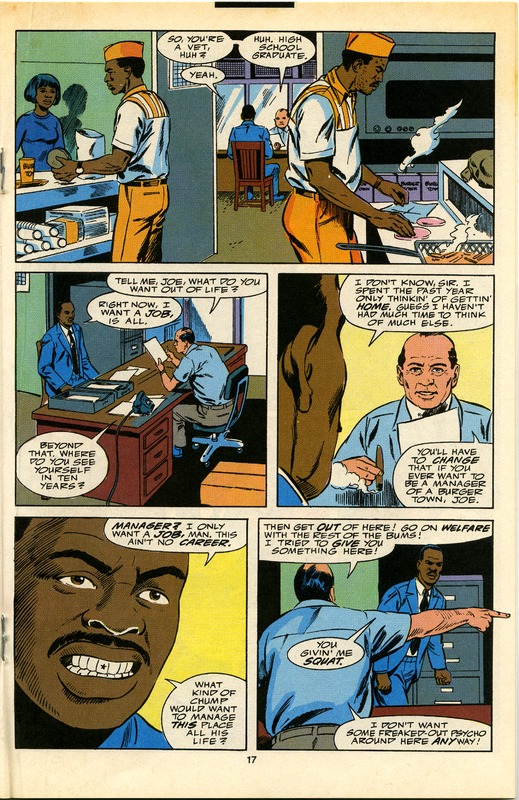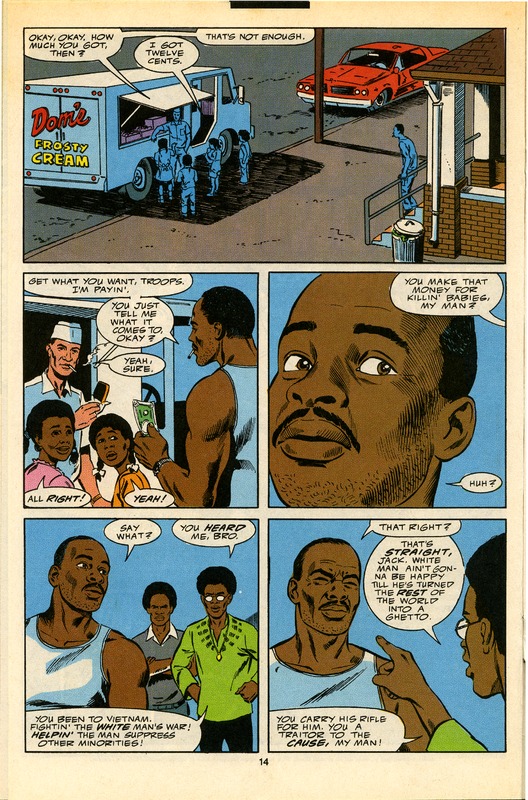Joe Hallen’s character in Marvel’s installment of The Nam, The Death of Joe Hallen, follows the complicated narrative of a black soldier in the Vietnam War. His short appearance in this five-issue run shows the dichotomy of being a soldier and being black in America. The way author Chuck Dixon writes the intersection of these two identities provides the foundation for Hallen to be read as an Uncle Tom archetype by his black community.
In this first scene, Hallen encounters his sister’s boyfriend, Tremayne, when he enters his mother’s house and find’s Tremayne lethargic on the couch. Tremayne appears to be an unemployed freeloader living off the work of his girlfriend’s mother. The optics of Hallen entering his mother’s home as a soldier returning home from war to take care of his family in comparison to Tremayne’s willingness to stay at home while someone else works for him sets up the juxtaposition between the good black man, who is a soldier, and the “bad” urban youth.
Even though the author makes this comparison through Hallen and Tremayne, Hallen still meets the same discrimination that would plague Tremayne. After Hallen’s asserts that he is qualified for a more skilled position than managing a local fast food restaurant, the white restaurant owner expels Hallen from his office and accuses him of looking for a job handout. It is true that many African American men found it harder to find skilled work positions after serving tours of duty overseas in comparison to the white servicemen who looked for jobs after their tours (Graham 30). The other black men Hallen encounters interpret his confidence in attaining higher-level job as arrogance. His community members view Hallen as a self-righteous black man who is willing to fight “the white man’s war.” Black community leaders and civil rights activists in the late sixties and early seventies consistently opposed black casualties in the war effort because of the lack of freedom blacks had in the US (Graham 21). Hallen’s rejection of those community ideals makes him an outsider in his community as shown in the third panel with the two black men condemning him for willingly becoming a soldier and being a “traitor to the cause.” Here, Hallen is treated as an Uncle Tom in the eyes of his black community members.
Because of this rejection from his community and limited job prospects, Hallen returns to Vietnam for his second tour of duty. This was the reality for many black GI’s who enlisted in service (Graham 26). Hallen’s decision to re-engage in the tumultuous lifestyle of a soldier is founded in his desire to access the economic security of being a soldier, even if that financial security comes at the price of physical security. Ultimately, he must go back to war in order to support himself and his family, even despite the way his fellow back men label him an Uncle Tom.


